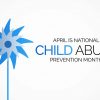![You brought your baby home….Now what? Written by Kate Davis, MD, Pediatrician, Holland Pediatrics The first few weeks at home with a newborn can be overwhelming and bewildering. It all looks so easy on television, and everyone has different advice. All parents feel unsure of themselves at times. There is no such thing as a perfect parent. Many of […]](https://helpmegrowottawa.org/wp-content/uploads/2020/06/shutterstock_82287202.jpg)
Written by Kate Davis, MD, Pediatrician, Holland Pediatrics
The first few weeks at home with a newborn can be overwhelming and bewildering. It all looks so easy on television, and everyone has different advice. All parents feel unsure of themselves at times. There is no such thing as a perfect parent. Many of your worries will disappear as you begin to care for your baby. Here is some information that should help you those first few weeks after bringing your baby home.
Feeding
Feeding is the time when parents communicate closely with their new infant. Whether breast or bottle feeding, this is the time to hold your baby close to you in order to help both you and the baby form a strong bond.
Breastmilk is the ideal food for your newborn infant. It offers the perfect balance of nutrients as well as some protection against illness. However, don’t feel guilty if you prefer to or must bottle feed your baby. Millions of children have grown up healthy and strong with formula. Discuss feeding concerns with your baby’s doctor before making any formula changes.
Infants typically want to feed every 1-3 hours. It is best to feed on demand for at least the first month of age, but if your baby hasn’t woken after 3 hours to eat in the first 2-3 weeks you should wake them in order to offer the breast or bottle. Typically infants take 2-3 ounces at a time for the first few weeks of life and then gradually increase the amount. It is important to see your baby’s doctor within a few days after going home from the hospital to make sure they are gaining weight properly.
Most babies will spit up at times, some more frequently than others. This is normal. Burping your infant frequently may help to reduce this occurrence but will not eliminate it altogether. If they are spitting up large amounts each feeding it can sometimes mean they are getting too much to eat. Seeing your baby’s doctor for a weight check can help determine if there is any concern with the amount of spitting up.
Signs that baby is getting enough milk are as follows:
- Steady weight gain after the first week of age
- Pale yellow urine, not deep yellow or orange
- Sleeping well, yet baby looks alert and healthy when awake
Babies do not need anything besides breastmilk or formula until at least 4 months of age, and should never be given plain water under 4 months of age
Diapers
You should expect to change a lot of diapers with your newborn. You should expect:
- First day home: 2-3 bowel movements and wet diapers
- Day 3: Should have at least 3 of each/day
- Day 4: Should have at least 4 of each/day
- Day 5: Should have at least 5 of each/day
- After the first few weeks, babies should continue to have a wet diaper with each change but bowel movements can become less frequent. Formula-fed infants may have fewer bowel movements than breastfed but should still have plenty of wet diapers.
- Bowel movement will change from a sticky, tarry type to a yellowish color during the first week of life.
Sleep Patterns
Your baby should sleep on his or her back only. Babies spend most of their time sleeping and will awaken every 2 to 4 hours to eat. Often they seem to have their nights and days mixed up and want to sleep during the day and be up more frequently at night. They will gradually begin to sleep less during the daytime and longer at night, but it is not much you can do to make this happen. If your baby sleeps longer than 3-4 hours you can wake them to feed during the first 2 weeks. Some infants will sleep longer stretches during the night quite quickly and some won’t do it until closer to 4 months of age. If they are being held constantly during the day they may be more resistant to laying in their crib or bassinet at night, so have your baby spend some time in the bassinet or crib during the day as well.
Skin
The majority of diaper rashes are due to skin contact with urine or stool, careful attention to the following should help:
- Change the diaper frequently and cleanse the area well
- Use plain water to cleanse if able (rinse wipes out or use a clean washcloth)
- Expose the skin to air for 5 minutes three times a day
- Soak bottom in a warm bath for 15 minutes twice a day
- Zinc oxide, Vitamin A & D and other diaper creams may be used
Newborns tend to have very dry skin during the first two weeks of life due to the fact that they were hanging out in fluid for 9 months. You can use a small amount of lotion on their skin but don’t feel like you have to. Use unscented products as much as possible.
Hiccups
Newborns get hiccups all the time. It is not because you are feeding them wrong. They often happen after eating due to the fact that their stomach fills and then can rub up against their diaphragm, causing hiccups. They will go away on their own and usually are not bothersome to your baby.
Sneezing
Infants also sneeze a lot. It does not mean that they are allergic or getting sick. It is their way of trying to clear their nasal passages.
Illness
Infants are more susceptible to getting sick and should be seen immediately if they develop a fever >100.4 during the first 10 weeks of life. Encourage good handwashing at home and ask friends and family members to stay away if they are not feeling well.
Doctor’s visits
You will probably get to know your baby’s doctor pretty well in the first few months of life. You should expect to see them a few days after going home from the hospital and then usually at 3 weeks of age again. Often you will be seen in between those visits to check weight or bilirubin (jaundice) levels. You should also expect check-ups at 2, 4, and 6 months in that first 6 months of life.
Vaccines
Vaccines (immunizations, shots) are important to keep your infant healthy. Discuss any questions or concerns you have with your newborn’s doctor.
Try to enjoy the time with your infant. Allow others to help if you are feeling overwhelmed or exhausted. If you feel like you are not able to enjoy any time with your infant or family you may have postpartum depression and anxiety and you should reach out to your own doctor or your newborn’s doctor to get help dealing with that very common condition.
For more great resources the American Academy of Pediatrics has a parent website called HealthyChidren.org. There is a section on the first months of life with lots of information at https://www.healthychildren.org/English/ages-stages/baby/Pages/default.aspx, and it is available in Spanish as well.
Congratulations!






